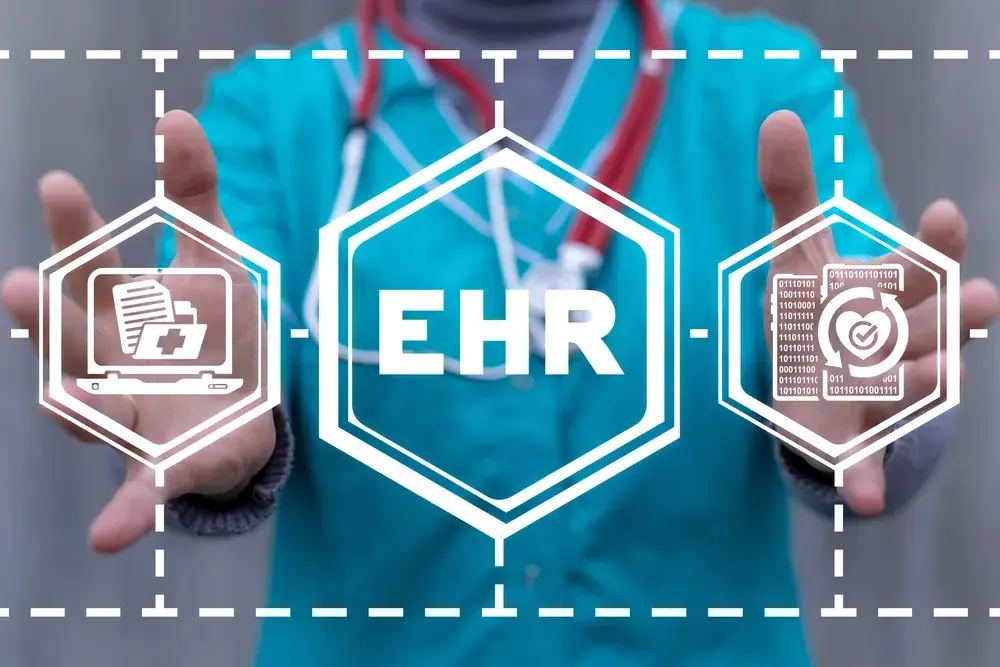From cameras to alarm clocks and phone books, everything you need is now on your smartphone. That’s because convenience is all that matters in the modern world. So why should managing your practice be any different?...
A growing issue for urology care providers is that many claims are denied due to billing errors. This underscores the importance of mastering urology medical billing to ensure that practices receive the reimbursements they deserve. Effective billing is crucial for the financial health of any urology practice, allowing providers to continue delivering high-quality urology care without interruption.
Implementing a reliable urology EHR system is one of the most effective ways to streamline the billing process and maximize reimbursements. A specialty-specific EHR tailored for urology practices can help reduce errors, improve documentation, and facilitate smoother interactions with insurance providers. These systems are designed to address the unique needs of urology practices, which make them indispensable tools for efficient practice management.
In this blog, we will discuss five essential tips for maximizing reimbursements in urology EHR billing. By following these strategies, urology practices can enhance their billing processes, reduce claim denials, and ensure they receive accurate and timely payments for the services they provide.

1. Ensure Accurate and Detailed Documentation With Urology EHR
Precise documentation ensures that all services provided are correctly recorded, reducing the likelihood of claim denials. EHR software can significantly enhance documentation accuracy by offering templates and prompts tailored to the specific needs of urology care. These features help capture every detail of patient visits, treatments, and procedures.
Moreover, detailed documentation supports better communication with insurance providers, as it clearly outlines the medical necessity of the services rendered. When insurance companies can easily understand the scope and rationale of the care provided, they are more likely to approve claims without issues. Additionally, thorough records make it easier to appeal denied claims, as they provide comprehensive evidence to support the validity of the charges.
Using a urology-specific EHR also streamlines the documentation process, saving time for healthcare providers and administrative staff. Automated tools and integrated features reduce the risk of human error, ensuring that records are complete and accurate. By focusing on detailed and precise documentation, urology practices can improve their billing accuracy, reduce claim denials, and enhance overall reimbursement rates.
2. Utilize Integrated Coding and Billing Features
Using integrated coding and billing features in your urology EHR can help maximize reimbursements. These features help ensure that all services are coded accurately, which is crucial for reducing billing errors. Top EHR systems come equipped with up-to-date coding databases and automated coding suggestions that align with the latest ICD-10 and CPT codes, minimizing the chances of submitting incorrect or outdated codes.
Additionally, integrated billing features streamline the entire urology medical billing process by automating tasks such as claim generation, submission, and tracking. This reduces the administrative burden on your staff and speeds up the reimbursement cycle. Automated checks for coding accuracy and completeness before submission can catch potential issues that might lead to claim denials, allowing for corrections to be made promptly. This proactive approach significantly enhances the efficiency of your billing operations and ensures urology care.
Moreover, these integrated features facilitate better communication with payers. Ensuring that all billing information is accurate and complete from the outset reduces the likelihood of disputes and delays. This smooth interaction with insurance companies improves cash flow and enhances your practice's overall financial stability. Leveraging the integrated coding and billing features of a reliable EHR system, like PracticeEHR, is a strategic move that can lead to more timely and accurate reimbursements.
3. Conduct Regular Training and Audits
Regular training and audits are crucial for maintaining the efficiency and accuracy of your urology medical billing processes. Regular training sessions ensure your staff is up-to-date with the latest billing codes, regulations, and best practices. This ongoing education helps prevent common billing errors and ensures that your team can handle any updates or changes in the billing landscape. All-in-one EHR systems often provide training resources and support to help your staff stay informed and proficient.
In addition to training, regular audits are essential for identifying and correcting any issues in your billing processes. Audits allow you to review submitted claims, identify patterns of denials or rejections, and address the root causes of these issues. By systematically analyzing your billing operations, you can implement corrective measures to improve accuracy and efficiency. This proactive approach helps maximize reimbursements and enhances the overall financial health of your practice.
Furthermore, regular audits and training sessions foster a culture of continuous improvement within your practice. By emphasizing the importance of accuracy and staying current with industry standards, you ensure that your team remains vigilant and committed to excellence. This dedication to ongoing education and process improvement ultimately leads to more streamlined operations, better urology care, and a more financially stable practice.
4. Leverage Real-Time Eligibility Verification
Leveraging real-time eligibility verification is a powerful way to maximize reimbursements in urology medical billing. This feature, available in all-in-one EHR systems, allows you to instantly check a patient's insurance coverage and benefits before providing services. By verifying eligibility in real-time, you can ensure that the services you provide are covered, reducing the risk of claim denials and unexpected out-of-pocket costs for patients.
Furthermore, real-time eligibility verification streamlines the billing process by identifying any issues with coverage upfront. This proactive approach allows your staff to address potential problems, such as pre-authorization requirements or coverage limitations, before they impact the reimbursement process.
Incorporating real-time eligibility checks into your workflow can also improve your practice’s financial health. By reducing the number of denied claims and minimizing billing errors, you can enhance cash flow and ensure more predictable revenue streams. Utilizing the real-time eligibility verification features of your urology EHR, such as those offered by Practice EHR, is an essential strategy for optimizing urology medical billing efficiency and ensuring your practice receives the reimbursements it deserves.
5. Stay Updated on Regulatory Changes and Payer Policies
Staying updated on regulatory changes and payer policies is essential for maximizing reimbursements in urology medical billing. The healthcare landscape is constantly evolving, with new regulations and payer requirements being introduced regularly. By staying up-to-date on these changes, your practice can ensure compliance and avoid potential billing issues. Utilizing a cloud-based EHR system that provides regular updates and alerts about these changes can significantly ease this process.
Additionally, understanding payer policies helps prevent claim denials and delays. Each insurance provider has its own set of rules and guidelines for billing and coding. Familiarizing your staff with these policies ensures that claims are submitted correctly the first time, reducing the need for resubmissions and appeals. Regular training sessions and updates within your EHR system can help your team stay informed about the latest payer requirements.
Moreover, staying proactive about regulatory changes and payer policies enhances billing accuracy and improves your practice's overall efficiency. Incorporating this knowledge into your billing processes can streamline operations and ensure smoother interactions with insurance companies.

Practice EHR - ONE That Maximizes Reimbursement in Urology EHR Billing
Maximizing reimbursements in urology medical billing requires a strategic approach that includes accurate documentation, integrated coding and billing, continuous training, real-time eligibility verification, and staying updated on regulatory changes. By leveraging the advanced features of a urology EHR system like Practice EHR, practices can streamline their billing processes and improve financial outcomes.
Practice EHR is designed to address the unique challenges of urology care, ensuring that your practice operates efficiently and compliantly. By adopting these essential tips and utilizing PracticeEHR, you can enhance your billing accuracy, reduce claim denials, and ultimately maximize your reimbursements, allowing you to focus on delivering exceptional patient care. Schedule a free demo of the urology Ehr now!
Topics: Patient Care, EHR Solution, Specialty-Specific EHR, digital age, Industry Update, Medical Billing, Medical billing services, RCM, EHR, Technology in Healthcare, Kiosk, EHR Features, ePrescribing, Urology EHR
RECENT POSTS



TOPICS
- EHR Solution (147)
- EHR (84)
- Patient Care (77)
- digital age (77)
- Medical Billing (72)
- Specialty-Specific EHR (70)
- Integrated EHR (59)
- Small Practice (56)
- Technology in Healthcare (55)
- Industry Update (50)
- New Technology (47)
- Medical billing services (45)
- RCM (43)
- EHR Features (42)
- Cloud-based EHR (39)
- Practice EHR News (39)
- Healthcare Office Management (37)
- Kiosk (28)
- ePrescribing (21)
- HIPAA Security (20)
- Telemedicine (14)
- EMR (12)
- Revenue Cycle Management (12)
- Practice Management Software (11)
- Client Favorites (10)
- Practice Automation (10)
- The ONE (10)
- Urgent Care (8)
- MACRA/MIPS (7)
- Patient Portal (7)
- Switching to New EHR (6)
- events (6)
- E-Prescribing (5)
- Product Updates (5)
- TeleVisit (5)
- AI Solutions (4)
- Insider (4)
- Internal Medicine EHR (4)
- MIPS (4)
- Podiatry (4)
- Podiatry EHR (4)
- AI Scribing (3)
- HIPAA (3)
- MIPS Reporting (3)
- Regulatory Updates (3)
- AI scanning (2)
- Billing for Private Practices (2)
- Clearinghouse (2)
- Dermatology EHR (2)
- EHR Scheduling (2)
- Foot and Ankle Care (2)
- Foot and Ankle EHR (2)
- Health records 101 (2)
- Integrated Practice Management (2)
- Medical Credentialing (2)
- Medical Practice Management Software (2)
- Orthopedics EHR (2)
- Patient Check-in Kiosk (2)
- Psychiatry EHR (2)
- Quality of Patient Care (2)
- Reporting Under MIPS (2)
- Risk and Liability in Medical Settings (2)
- Telehealth Platform (2)
- Telehealth Platforms (2)
- What Works Clearinghouse (2)
- AI-powered Medical Billing (1)
- Bariatric EHR (1)
- Behavioral Health Practices (1)
- Billing Communication (1)
- Cardiology EHR (1)
- Cash Flow (1)
- Chiropractic EHR (1)
- Data Security (1)
- Dos and Don'ts (1)
- EHR Guides (1)
- EHR KPIs (1)
- EHR Questions to Ask (1)
- EHR for Chiropractors (1)
- EHR for Chronic Illness (1)
- EMR vs EHR Difference (1)
- ENT EHR (1)
- Eligibility Verification in Medical Billing (1)
- Endocrinology EHR (1)
- Family Medicine (1)
- Family Medicine EHR (1)
- Gastroenterology (1)
- Gastroenterology EHR (1)
- General Surgery EHR (1)
- Geriatrics EHR (1)
- Guides (1)
- Healthcare Compliance Certification (1)
- Healthcare Practice Office Management (1)
- Help Center Videos (1)
- Insurance Reimbursement (1)
- KPI (1)
- Key Performance Indicators (1)
- Lab Processing (1)
- MACRA (1)
- Medical Billing Partner (1)
- Medical Coding Services (1)
- Mobile EHR (1)
- Nephrology EHR (1)
- Neurology EHR (1)
- Pain Management EHR (1)
- Pediatrics EHR (1)
- Physical Therapy EHR (1)
- Practice Cash Flow (1)
- PracticeEHR GO App (1)
- Pulmonology EHR (1)
- Simplify Practice Management (1)
- Staffing in Healthcare (1)
- Switch Medical Billing Providers (1)
- Urgent Care Medical Billing (1)
- Urology EHR (1)
- insurance claim denials (1)







